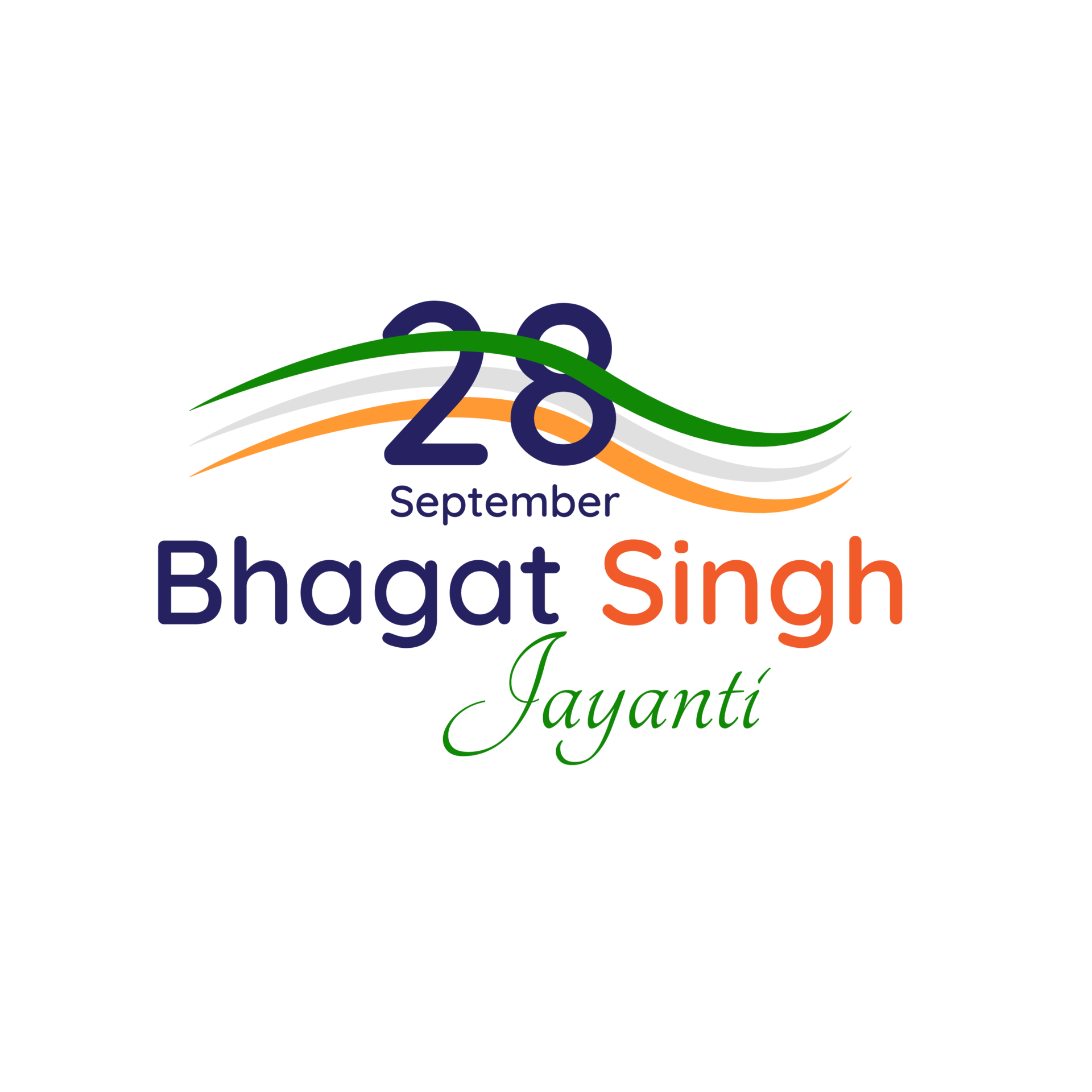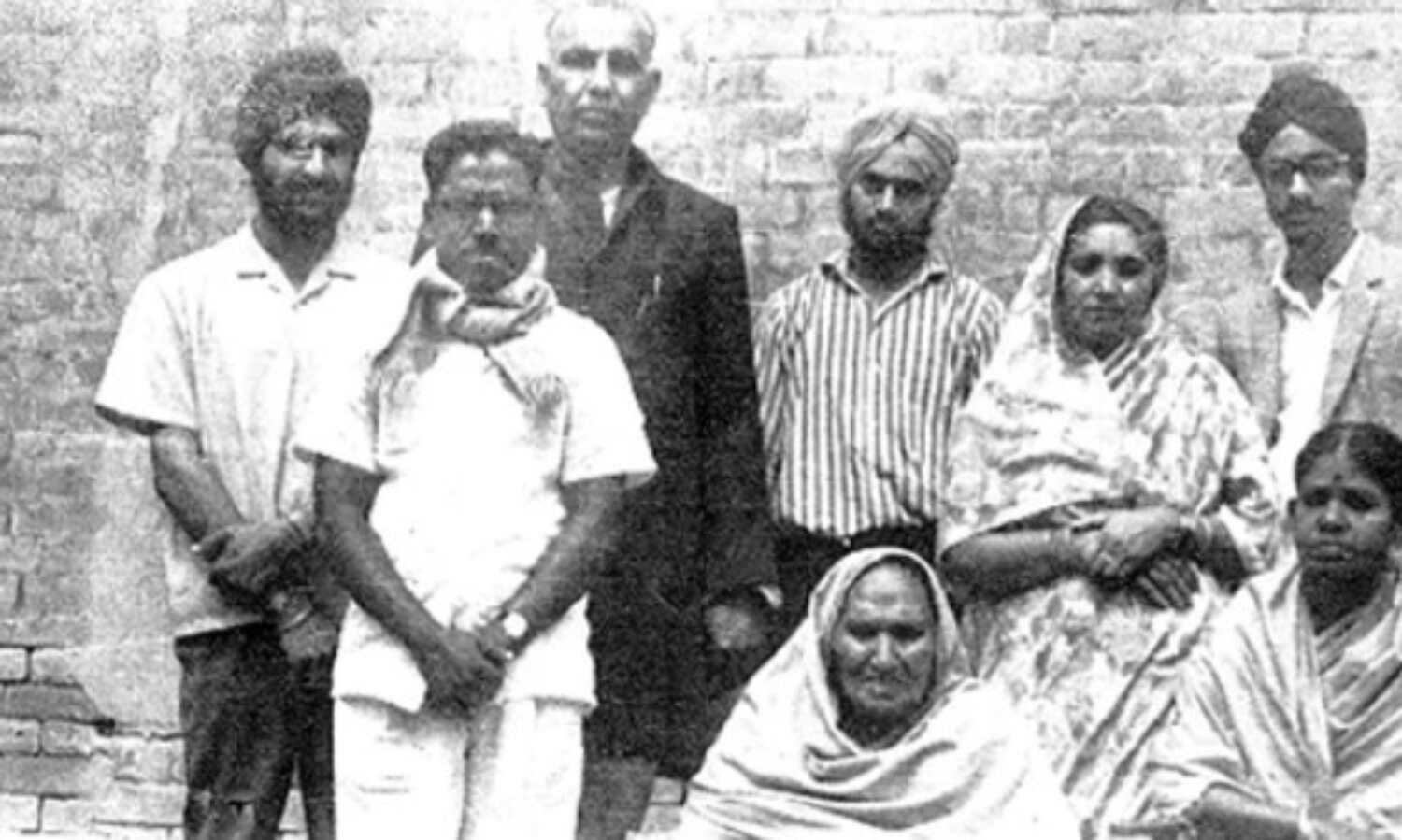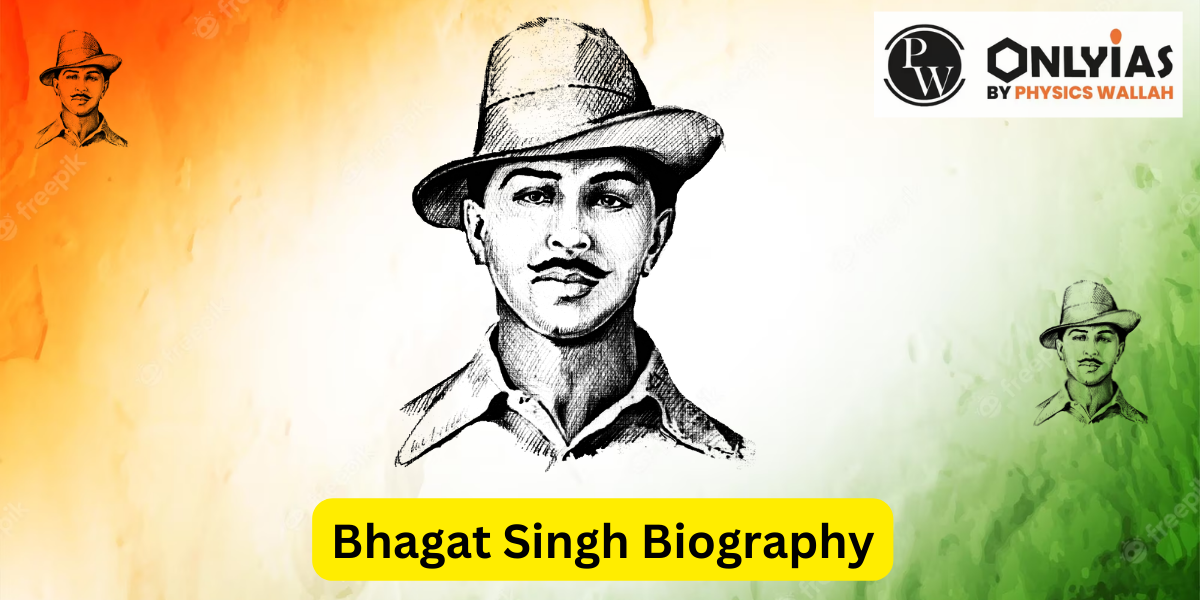Bhagat Singh, a name that resonates with courage, sacrifice, and the fight for freedom, was born on September 28, 1907, in the village of Banga, located in the Lyallpur district of Punjab, which is now part of Pakistan. His birth marked the beginning of an extraordinary journey that would inspire generations to come. As one of India's most celebrated freedom fighters, Bhagat Singh's life remains a beacon of inspiration for those who strive for justice and equality.
Bhagat Singh's legacy continues to thrive in the hearts of millions across the globe. His revolutionary ideas, coupled with his unwavering commitment to the cause of Indian independence, have made him an iconic figure in history. Understanding his birthdate and the historical context surrounding his life can help us appreciate the depth of his contributions to the nation.
In this article, we will delve into the details of Bhagat Singh's life, focusing on his birthdate, early years, and the pivotal events that shaped his destiny. We will explore how his birthdate influenced his revolutionary journey and examine the historical significance of his contributions to India's struggle for independence. Let's embark on this journey of discovery together.
Read also:Camilla Poindexter Age Unveiling The Life And Journey Of A Remarkable Talent
Table of Contents
- Biography of Bhagat Singh
- Bhagat Singh's Birthdate
- Early Life and Family Background
- The Revolutionary Path
- Key Events in Bhagat Singh's Life
- Ideology and Philosophy
- Legacy of Bhagat Singh
- Historical Impact
- Memorials and Tributes
- Conclusion
Biography of Bhagat Singh
Data and Personal Information
Bhagat Singh was born into a Sikh family that was deeply involved in the Indian independence movement. Below is a summary of his personal information:
| Full Name | Bhagat Singh |
|---|---|
| Birthdate | September 28, 1907 |
| Place of Birth | Banga, Lyallpur district, Punjab (now in Pakistan) |
| Parents | Kishan Singh (Father) and Vidyavati (Mother) |
| Siblings | Two brothers (Jagat Singh and Kulbir Singh) and one sister (Bibi Amar Kaur) |
Bhagat Singh's upbringing in a politically active family played a significant role in shaping his revolutionary mindset. His father, Kishan Singh, and uncle, Ajit Singh, were both active members of the Ghadar Party, which sought to overthrow British rule in India.
Bhagat Singh's Birthdate
Born on September 28, 1907, Bhagat Singh's birth was a significant event in the history of India's struggle for independence. His arrival into the world coincided with a period of intense political turmoil and activism in the country. The year 1907 marked the beginning of a new wave of revolutionary movements that sought to challenge British colonialism.
Historical Context of His Birth
The early 20th century was a time of great upheaval in India. The British Raj had tightened its grip on the country, leading to widespread dissatisfaction among the population. Bhagat Singh's birth in such a volatile environment was not coincidental; it was almost predestined that he would grow up to become a key figure in the fight for freedom.
Did you know? Bhagat Singh's birthdate aligns with the rise of revolutionary groups like the Ghadar Party and the Anushilan Samiti, which played a crucial role in shaping his ideological beliefs.
Early Life and Family Background
Bhagat Singh's early years were marked by a strong sense of patriotism and a desire to serve the nation. Growing up in a family of freedom fighters, he was exposed to political activism from a very young age. His father and uncle's involvement in the Ghadar Party instilled in him a deep sense of responsibility towards the cause of independence.
Read also:Unveiling The Enigmatic Wolf Neiruzam A Comprehensive Guide
Education and Influences
- Bhagat Singh received his early education in the local schools of Lyallpur.
- He later attended the National College in Lahore, where he was influenced by socialist and Marxist ideologies.
- His exposure to revolutionary literature and thinkers such as Vladimir Lenin and Karl Marx played a pivotal role in shaping his worldview.
Bhagat Singh's early exposure to political ideas and revolutionary movements laid the foundation for his future endeavors. His education and influences helped him develop a critical understanding of the socio-political issues facing India at the time.
The Revolutionary Path
Bhagat Singh's journey as a revolutionary began in his teenage years. By the age of 16, he had already become an active member of several revolutionary organizations. His involvement in the freedom struggle intensified as he became more aware of the injustices perpetrated by the British colonial government.
Key Organizations
- Bhagat Singh was a prominent member of the Hindustan Socialist Republican Association (HSRA).
- He collaborated with other revolutionary leaders such as Chandrashekhar Azad and Sukhdev Thapar.
- His association with these organizations allowed him to plan and execute several daring operations against the British.
Bhagat Singh's revolutionary path was characterized by his commitment to justice and equality. He believed that violence was sometimes necessary to achieve freedom, but he also emphasized the importance of ideological clarity and discipline.
Key Events in Bhagat Singh's Life
Bhagat Singh's life was filled with significant events that shaped the course of India's independence movement. Some of the most notable events include:
The Assembly Bombing
In 1929, Bhagat Singh, along with Batukeshwar Dutt, threw bombs in the Central Legislative Assembly in Delhi. The act was symbolic, as the bombs were not intended to cause harm but to protest against the repressive policies of the British government. The event brought widespread attention to their cause and highlighted the need for more aggressive measures in the struggle for freedom.
The Lahore Conspiracy Case
Bhagat Singh was arrested and tried for his involvement in the assassination of British police officer John Saunders. The trial, known as the Lahore Conspiracy Case, attracted international attention and became a symbol of the Indian freedom struggle. Despite facing the death penalty, Bhagat Singh remained steadfast in his beliefs and continued to inspire others through his writings and speeches.
Ideology and Philosophy
Bhagat Singh's ideology was deeply rooted in socialism and Marxism. He believed that true freedom could only be achieved through the eradication of social and economic inequalities. His writings and speeches reflect his commitment to creating a just and equitable society.
Main Principles
- Rejection of capitalism and imperialism.
- Advocacy for workers' rights and social justice.
- Belief in the power of collective action and unity.
Bhagat Singh's ideological framework was informed by his experiences and observations of the socio-political conditions in India. He saw the struggle for independence as a means to achieve broader social and economic reforms.
Legacy of Bhagat Singh
Bhagat Singh's legacy extends far beyond his lifetime. His contributions to the Indian independence movement have left an indelible mark on history. Today, he is remembered as a symbol of courage, sacrifice, and unwavering dedication to the cause of freedom.
Impact on Modern India
Bhagat Singh's ideas continue to influence contemporary political discourse in India. His emphasis on social justice and equality remains relevant in addressing the challenges faced by modern society. Numerous institutions, memorials, and scholarships have been established in his honor, ensuring that his legacy lives on.
Historical Impact
Bhagat Singh's impact on history cannot be overstated. His actions and ideas played a crucial role in shaping the course of India's independence movement. His martyrdom on March 23, 1931, at the age of 23, served as a rallying cry for millions of Indians who were inspired by his courage and determination.
Lessons for Future Generations
- Importance of standing up for justice and equality.
- Power of collective action in bringing about change.
- Need for ideological clarity and commitment to one's principles.
Bhagat Singh's historical impact serves as a reminder of the sacrifices made by those who fought for India's freedom. His life and legacy continue to inspire future generations to strive for a better world.
Memorials and Tributes
Bhagat Singh's memory is honored through numerous memorials and tributes across India. These include:
Notable Memorials
- Bhagat Singh Museum in Lahore, Pakistan.
- Bhagat Singh Memorial in Khatkar Kalan, Punjab, India.
- Bhagat Singh Statue in the Parliament of India.
These memorials serve as a testament to Bhagat Singh's enduring legacy and the profound impact he had on the nation's history.
Conclusion
In conclusion, Bhagat Singh's birthdate, September 28, 1907, marks the beginning of an extraordinary journey that would shape the course of India's independence movement. His revolutionary ideas, unwavering commitment to justice, and ultimate sacrifice continue to inspire millions across the globe.
We invite you to reflect on Bhagat Singh's legacy and the lessons it offers for future generations. Share your thoughts in the comments below, and explore other articles on our site to deepen your understanding of India's rich history and culture.
Remember, the fight for justice and equality is ongoing, and each of us has a role to play in building a better world. Let Bhagat Singh's example guide us in our pursuit of a brighter future.
Sources:
- Official Records of the Lahore Conspiracy Case
- Biographies of Bhagat Singh by renowned historians
- Archival documents from the National Archives of India


